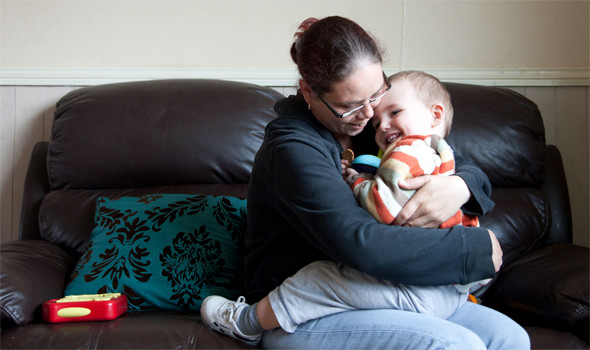Richest lose the most cash but UK families are worst affected by Tory tax and benefit changes

British households with young children and the poorest in society are the worst affected by the government's tax changes, although the richest lost the most amount of money, says new research.
According to three universities, the London School of Economics, Manchester and York, people with incomes over £100,000 (€134,235, $150,942) lost more than the average person on the Conservative led coalition's tax changes.
However, the authors of the report says that families with young children are the worst affected because of the amount lost is comparably greater when viewed as a proportion of their income.
"While people at the bottom were initially protected with the way benefits were adjusted for inflation, that has not been the case for the last two years," said John Hills, director of the Centre for the Analysis of Social Exclusion at London School of Economics.
Kitty Stewart, author of the part of the report examining the impact on under fives, said "that it's families that are taking the biggest hit is really disappointing and short-sighted."
"We know that family income and services are important to children's development. All the research evidence tells us both of those matter and both of those have been hit," she added.
The government has limited the amount households can receive in benefits to £26,000 a year while also abolishing baby tax credit.
Whitehall has also shifted tax credit thresholds.
The research claims that this has meant that real spending per child on early education and childcare and Sure Start services has fallen by 25% between the 2009-10 tax year and 2012-13.
"The richest have lost the most from the government's changes to taxes and welfare," said a Treasury spokesperson in a media statement.
"[The LSE research failed to take into account] effects of changes to the vital public services on which so many rely. That means that it can't consider the full range of ways the government provides support to the poorest and most vulnerable families across the country".
However, the latest research falls in line with the Institute for Fiscal Studies study, which claimed that the government's changes to taxation and benefits have left households an average of £1,127 out of pocket.
The IFS said poorer families with children have lost out, as have households in London and the south-east, as a result of the Conservative-led changes.
"Whichever way you cut it, low-income households with children and the very richest households have lost out significantly from the changes as a percentage of their incomes," said James Browne, a senior research economist at IFS and co-author of the report.
"Increases in the tax-free personal allowance have played an important role in protecting middle-income working-age households, meaning that those without children have actually gained overall."
© Copyright IBTimes 2025. All rights reserved.






















